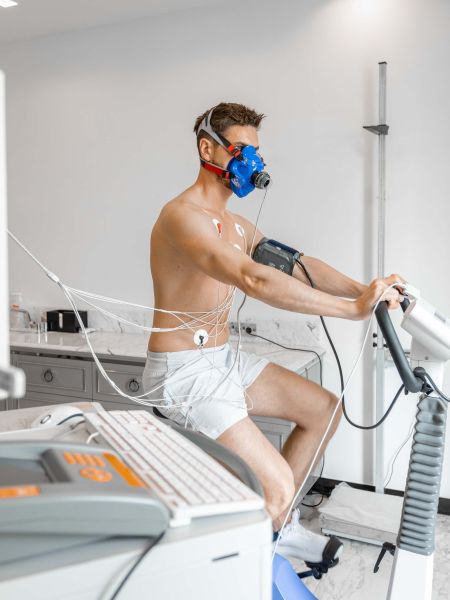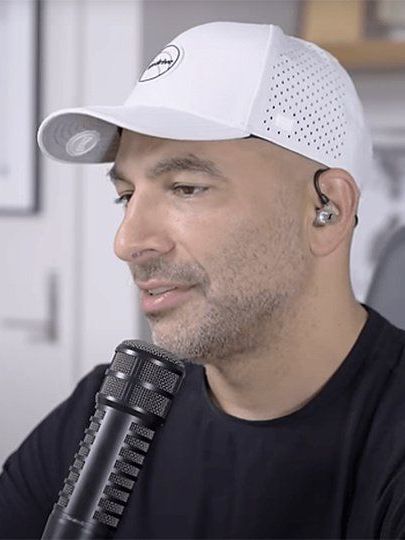Metabolic Adaptation and its Effects on Fat Loss
Expert Cited: Layne Norton
The way metabolism fluctuates when you're losing weight can significantly impact your success.
It's important to understand how your metabolic rate changes during periods of caloric restriction and weight loss. It's equally important to know what you can do to counteract and help mitigate the negative effects of metabolic adaptation.
With a PhD in nutritional sciences, health and wellness expert Layne Norton knows a lot about this subject.
He has some interesting insights into metabolic adaptation and how implementing strategies like refeeds and diet breaks in the right way can help promote sustainable fat loss.
To learn more, read on!
What is metabolic adaptation?
Metabolic adaptation, or adaptive thermogenesis, is your body's natural response to changes in energy intake and expenditure. When you create a calorie deficit to lose weight, your body senses the reduced energy availability and tries to conserve energy to maintain essential functions.
This leads to a drop in your total daily energy expenditure, which includes your basal metabolic rate, the energy used for digestion, and the energy used for physical activity.
Impact on fat loss
As you continue to lose weight and body fat, your metabolism slows down further, making it harder to lose fat. Many factors can contribute to this, including:
Reduced body mass: A smaller body requires less energy to function.
Hormonal changes: Hormones like leptin (which regulates hunger) and thyroid hormones (which control metabolism) can decrease, leading to increased hunger and decreased energy expenditure.
Muscle loss: Calorie restriction can sometimes lead to loss of muscle mass, which further reduces metabolic rate.
This metabolic slowdown can make it increasingly difficult to continue losing fat, as your body becomes more efficient at using energy. You may find that you need to eat even fewer calories or exercise more to maintain the same rate of fat loss.
Strategies to counteract metabolic adaptation
Diet breaks and refeeds are strategies that can help counteract metabolic adaptation.
By providing the body with a temporary surge of energy, refeeds and diet breaks can boost your metabolism, mitigating the decrease in resting energy expenditure and other side effects associated with prolonged calorie restriction.
This allows for continued fat reduction while minimizing muscle loss and metabolic slowdown.
-
Refeeds: Planned, temporary increases in calorie intake, usually lasting one to two days, during a period of calorie restriction or dieting. Consuming more carbohydrates during this time can help boost leptin levels, increase metabolism, and improve adherence to your diet.
By replenishing glycogen stores, refeeds can improve energy levels and exercise performance, which can help preserve muscle mass during a calorie deficit.
By understanding how refeeds work and implementing them strategically, you can optimize your diet plan for sustainable success.
-
Diet breaks: A brief break from your calorie deficit, usually lasting a week or two. This can help reset your metabolism and hormone levels, making it easier to continue losing fat when you resume your calorie deficit.
A study from the University of Tasmania examined the effects of diet breaks on fat loss.
The study found that taking a two-week break from your diet could help improve weight loss, assist with maintaining lean muscle mass, and play a role in preventing fat regain.
Incorporating diet breaks and recalculating maintenance calories to account for changes in metabolism can help counteract metabolic adaptation, aiding in fat loss and overall metabolic health.
The optimal frequency and duration of diet breaks may vary person to person, depending on individual needs and goals.
Sustainable fat loss
If you want to see long-term fat loss, it's crucial to consider metabolic adaptation and implement strategies like refeeds and diet breaks to mitigate its negative effects.
It's also critical to prioritize a healthy and balanced diet that provides adequate nutrients to support your body's functions.
By understanding and working with your body's natural responses, you can achieve your fat loss goals in a healthy and sustainable way.





